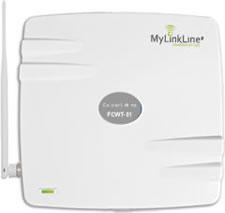Efficient Church Facility Management: Technology & Strategies
Optimize operations with technology and strategies in church facility management. Streamline maintenance, security, communication, and more.
Efficient church facility management is crucial for fostering a nurturing environment, enabling meaningful worship, and promoting community engagement. In today’s digital age, leveraging technology and innovative strategies plays a pivotal role in enhancing the management process. Among these strategies, MyLinkLine’s elevator cellular phone lines and monitoring system holds promise for improved communication and safety within church facilities.
This article delves into the significance of effective church facility management, the challenges that congregations encounter, the role of technology, and innovative approaches that ensure seamless operations.
The Significance of Efficient Church Facility Management
Church facility management is more than overseeing physical spaces; it’s about creating an atmosphere that reflects the congregation’s values and supports its mission. Effective management addresses maintenance, security, accessibility, communication, and sustainability. When these aspects are handled adeptly, churches can operate harmoniously, fostering a sense of unity and belonging among their members.
Navigating Challenges in Church Facility Management
The landscape of church facility management is not without its challenges, but strategic solutions can navigate these hurdles:
Budget Constraints: Efficiently managing resources is paramount for churches with limited budgets. To address this, church leaders can implement meticulous budgeting processes, directing funds towards essential maintenance and improvements aligned with the congregation’s priorities.
Security and Safety: Safeguarding the congregation, visitors, and staff requires a comprehensive security plan. Collaboration with security experts, installation of surveillance cameras, establishment of access controls, and training in emergency response protocols are essential steps.
Maintenance: Consistent maintenance is vital to ensure seamless services and activities. Developing proactive maintenance schedules, conducting regular inspections, and collaborating with local contractors familiar with church needs can prevent disruptions.
Communication: Effective communication is the cornerstone of successful church operations. The integration of modern communication tools such as church management software, email lists, and social media groups can streamline information dissemination.
Accessibility: Embracing inclusivity by complying with accessibility regulations is both a legal requirement and a reflection of values. Thorough accessibility audits followed by modifications like ramps, elevators, and accessible restrooms demonstrate a commitment to welcoming all.
Energy Efficiency: With the focus on sustainable practices, energy efficiency is critical. Exploring energy-saving measures like energy-efficient lighting, programmable thermostats, and renewable energy sources showcases responsible resource management.
Leveraging Technology for Efficient Church Facility Management
Modern technology introduces innovative solutions that transform how churches manage their facilities:
Church Management Software: Specialized software designed for churches streamlines administrative tasks. These platforms facilitate efficient event scheduling, volunteer coordination, membership tracking, and communication with congregants. Moreover, they provide valuable data-driven insights for informed decision-making.
Security Systems: Surveillance cameras, access control systems, and alarms have evolved significantly. High-definition cameras with remote monitoring capabilities enhance security by providing real-time surveillance. Access control systems empower church leaders to regulate facility entry.
Energy Management Systems: Automated controls for lighting, heating, and cooling optimize energy consumption. Programmable thermostats adjust settings based on occupancy, while motion-sensor lighting reduces unnecessary energy use.
Communication Tools: Digital communication tools offer new ways for churches to connect with their congregations. Email newsletters, social media updates, and messaging apps facilitate timely communication. Dynamic websites serve as information hubs for services, events, and outreach initiatives.
Innovative Strategies: MyLinkLine Elevator Cellular Phone Lines
Innovations like MyLinkLine’s elevator cellular phone lines and monitoring system revolutionize facility management
The Functionality of MyLinkLine
MyLinkLine employs cellular technology for elevator communication, eliminating the need for traditional landlines. This cellular-based communication ensures reliable connectivity with emergency responders and simplifies communication with facility management.

Advantages of MyLinkLine
Cost Savings: Eliminating expensive landline installations and maintenance translates to substantial cost savings.
Reliability: Cellular networks offer broad coverage and superior reliability, ensuring consistent communication even during power outages.
Scalability: MyLinkLine’s cellular approach accommodates facility expansion or additional elevators without complications.
Enhanced Safety: Reliable communication through MyLinkLine contributes to elevator passenger safety by facilitating swift assistance during emergencies.
Sustainability Initiatives and Community Engagement
Beyond technological advancements, churches can enhance facility management through sustainable practices and community involvement:
Sustainability Initiatives: Integrating energy-efficient measures, adopting renewable energy sources, and implementing waste reduction strategies align with responsible environmental practices.
Community Engagement: Church facilities can serve as community hubs through hosting events, workshops, and support programs that encourage connections and outreach.
Efficient church facility management is essential for fostering a welcoming environment that supports spiritual growth and community engagement. While challenges like budget constraints, security, maintenance, accessibility, and energy efficiency may seem formidable, technology and innovative strategies offer practical solutions.
By navigating these challenges strategically and leveraging technology effectively, churches can create an environment where congregants feel valued and connected.
Embracing modern tools such as church management software, security systems, energy management solutions, and digital communication platforms enhances facility management and strengthens the church’s impact on its congregation and the community at large. By uniting practical approaches with technological advancements, churches can continue to serve as bastions of faith, unity, and social responsibility while optimizing their church facility management processes.

